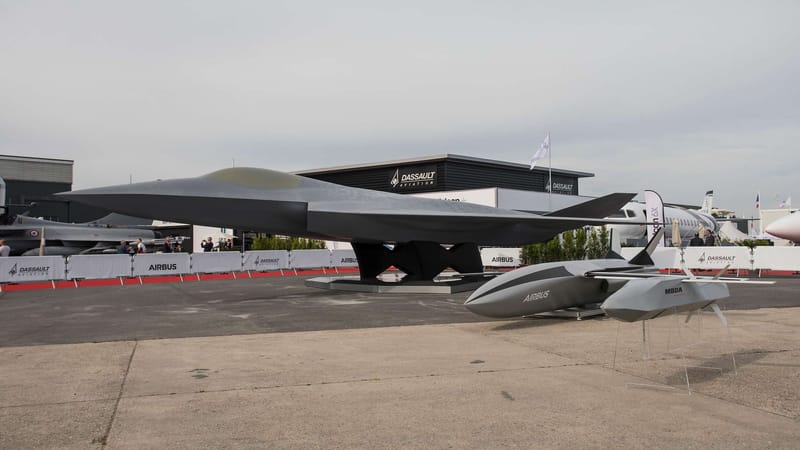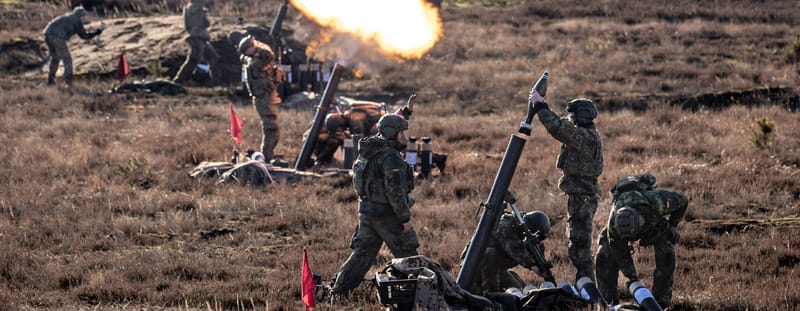Germany’s Accelerated Military Procurement: What Went Well and What Not
Germany accelerated defense procurement in 2024, approving 97 major projects, reflecting heightened security concerns due to Russia's aggression. Despite increased spending, structural issues like equipment bottlenecks and bureaucratic delays persist.

On December 20, 2024, the German Bundeswehr issued a press release under the headline “Beschaffung 2024: ‘Drehzahl deutlich erhöht’” (“Procurement 2024: ‘Significantly Accelerated’”). The announcement highlights Germany’s increased defense procurement efforts, which carry implications for European security in the context of Russia’s continued aggression against Ukraine. With streamlined procurement processes and a large number of major projects approved, Germany aims to strengthen its national defense and contribute to NATO’s collective security.
TL;DR:
Germany's Record Defense Procurement in 2024
Germany approved 97 major defense projects in 2024, surpassing all previous years, focusing on naval vessels, combat vehicles, air defense systems, and cyber capabilities to strengthen national security and NATO commitments.
€58 Billion Defense Spending Surge
Germany allocated over €58 billion for defense in 2024, with €20 billion drawn from the Sondervermögen fund, emphasizing rapid modernization amid European security tensions driven by Russia's invasion of Ukraine.
Naval Expansion: More Frigates and Submarines
Germany approved two more F126 frigates (total six) and four U212CD submarines, alongside starting the F127 frigate procurement and developing the IDAS missile for submarine defense.
Army Modernization: Leopard Tanks and Rocket Systems
The Bundeswehr added 105 Leopard 2A8 tanks, the PULS rocket artillery system, and continued developing the Schwerer Waffenträger Infanterie while advancing digital battlefield integration.
Air Defense Upgrades and Cyber Investments
Germany expanded Patriot missile systems, upgraded IRIS-T missiles, and boosted cyber resilience with increased data-center capacity and cloud infrastructure.
Challenges Despite Increased Spending
Critics highlight ongoing issues like ammunition shortages, outdated maintenance protocols, and personnel shortfalls, arguing that increased spending alone won't resolve structural Bundeswehr weaknesses.
A Record-Breaking Year for Defense Investments
In 2024, Germany presented 97 major defense procurement projects to the Parliament for approval—more than in any previous year. These projects span naval vessels, combat vehicles, air defense systems, and cyber capabilities. Each project involves an investment of over EUR 25 million and requires sign-off from the Parliamentary Budget Committee before contract signing.
The increase from 55 large-scale projects approved in 2023 to 97 in 2024 illustrates a more intense focus within Germany’s acquisition system. This effort responds, in part, to lessons learned from the conflict in Ukraine, prompting faster implementation of critical defense measures.
However, despite the large volume of new procurements, questions remain about the Bundeswehr’s overall readiness and ability to translate funding into tangible combat capability. For more background on these ongoing challenges—such as equipment bottlenecks and bureaucratic inefficiencies—please see our earlier article, “€100 Billion Later: Fixing the Bundeswehr Wasn’t on Budget”.
The “Zeitenwende” and Its Influence on Procurement
The German government’s concept of “Zeitenwende” (a turning point) has prompted a reassessment of defense policies and priorities. Russia’s invasion of Ukraine has accelerated the need for a well-equipped and combat-ready Bundeswehr. Under this framework, the government introduced a EUR 100-billion “Sondervermögen” (special defense fund) in 2022 to modernize and close capability gaps rapidly.
In 2024 alone, Germany approved more than EUR 58 billion in procurement projects, of which EUR 20 billion was sourced from the Sondervermögen. By the end of 2024, a significant portion of this fund has already been invested.
Critics, however, argue that the Sondervermögen cannot singlehandedly resolve long-standing structural and logistical shortfalls. As outlined in our previous coverage, multiple hurdles—ranging from understaffing to outdated maintenance protocols—continue to hinder the Bundeswehr’s operational readiness.
Strategic Acquisitions: Land, Sea, Air, Cyber
- Naval Projects
- Procurement of two additional F126 frigates (bringing the total to six).
- Acquisition of four more U212CD submarines.
- Commencement of the F127 frigate procurement process.
- Development of the IDAS (Interactive Defence and Attack System for Submarines) missile.
- Army Modernization
- Purchase of 105 Leopard 2A8 main battle tanks, focused partly on supporting the brigade in Lithuania.
- Introduction of the PULS rocket artillery system.
- Development of the Schwerer Waffenträger Infanterie (heavy infantry weapon carrier) and continued digitization of land operations (D-LBO).
- Progress on a new self-propelled anti-aircraft platform.
- Air Defense and Air Force Enhancements
- Additional Patriot air defense systems and associated missiles.
- Upgrades to extend the service life of IRIS-T missiles.
- Cyber Capabilities
- Expansion of data-center capacity and cloud infrastructure for the Bundeswehr’s IT and communications needs.
- Logistics and Support
- Procurement of extra protected and unprotected support vehicles.
- Continued investment in modular medical facilities to strengthen casualty care.
Though significant, these procurement initiatives do not fully address lingering issues such as ammunition shortages or personnel recruitment shortfalls. As noted in “€100 Billion Later: Fixing the Bundeswehr Wasn’t on Budget,” long-term solutions require both financial and organizational reforms.

Streamlining for Speed: The New Procurement Framework
Germany’s accelerated procurement relies on the 2022 Beschaffungsbeschleunigungsgesetz (Defense Procurement Acceleration Law), which simplifies certain contracting steps and encourages stronger cooperation with partner nations. Defense Minister Boris Pistorius has also introduced measures such as:
- Empowering the military branches to set procurement priorities more efficiently.
- Preferring market-available solutions to reduce the time from project design to contract signature.
- Making use of legal flexibility to shorten approval processes, while adhering to competition rules.
One example is the Leichter Kampfhubschrauber (light combat helicopter) project: just twelve months after the contract’s approval, the first helicopter was delivered in late 2024.
Even so, many observers caution that faster contract approvals are only the first step. Effective maintenance, stable leadership, and streamlined logistics are equally essential to ensure equipment is delivered, deployed, and sustained in the field.
Spotlight on the BAAINBw: From Policy to Equipment
The Bundesamt für Ausrüstung, Informationstechnik und Nutzung der Bundeswehr (BAAINBw) plays a central role in equipping the Bundeswehr. According to its president, Annette Lehnigk-Emden, the agency is managing around 1,700 projects—ranging from submarines to backpacks. Despite constant personnel levels, contract volume has risen significantly: over 12,000 new contracts were concluded in 2023, compared to an average of 11,000 in earlier years.
However, as detailed in our previous piece, “€100 Billion Later: Fixing the Bundeswehr Wasn’t on Budget”, scaling contract volume does not necessarily guarantee improved combat readiness. Ongoing maintenance backlogs and difficulties integrating new technologies remain barriers to effective modernization.
Faster and More Efficient
- Standardized Contracts: Similar templates for comparable procurements save time.
- Market-Available Products: Off-the-shelf equipment limits development delays.
- Extensive Framework Agreements: Continuous procurement of items like personal gear, vehicles, and ammunition, depending on budget availability.
Broader Context
Germany’s expanded procurement efforts reflect heightened security challenges in Europe. As a key NATO member and Europe’s largest economy, Germany’s defense posture influences collective deterrence strategies. Berlin’s modernization drive might encourage other European nations to enhance their own defense capabilities, but practical hurdles—from budget allocation to logistics—still loom large.
Conclusion
Germany’s 2024 procurement measures reflect increased momentum in its defense approach, underscored by a record number of contracts and significant allocations from the defense special fund. Nonetheless, the Bundeswehr continues to face structural challenges—from outdated equipment to bureaucratic inefficiencies—that cannot be solved by procurement alone.
As modernization efforts continue, success will depend on aligning new equipment purchases with comprehensive reforms to logistics, maintenance, and personnel management. Only then can Germany ensure its new capabilities effectively bolster both national defense and the broader NATO mission.








